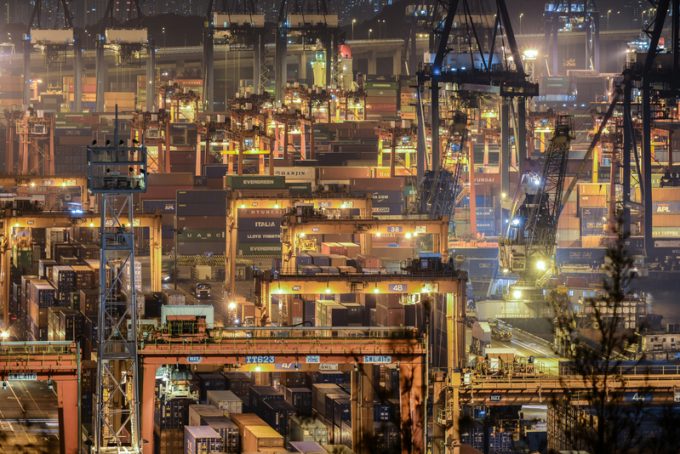Jury still out on benefits of index-linked contracts for shippers
Freight index platforms are keen to push index-linked agreements (ILAs), but there are questions about ...

Port and terminal consolidation is the “only long-term answer” to mitigate the impact of fewer calls of ultra large container vessels (ULCVs) bringing bigger box exchanges, argues Drewry.
Neil Davidson, senior analyst at Drewry’s ports & terminal practice, said yesterday that more M&A activity, “both operationally and financially”, was desirable to match that of its liner customers.
Mr Davidson was presenting Drewry’s Ports and Terminals Quarterly Review and in its assessment of the new east-west alliance networks launching in April, Mr Davidson expected ...
USTR fees will lead to 'complete destabilisation' of container shipping alliances
Outlook for container shipping 'more uncertain now than at the onset of Covid'
Flexport lawsuit an 'undifferentiated mass of gibberish', claims Freightmate
Cancelled voyages take the sting out of spot rate declines this week
Shippers warned: don't under-value US exports to avoid tariffs – 'CBP will catch you'
New Houthi warning to shipping as rebel group targets specific companies


Comment on this article
Ross Delaney
January 26, 2017 at 1:11 am“Port and container terminal consolidation can mitigate the impact of ULCVs”
or in other words according to us at Gilead….. “let’s double down on a broken supply chain system”
More high cost inland and beyond spend so those long the highest cost infrastructure (megaport & ULCVs & rail) can be bailed-out; just like they were bailed-in in the first instance by means of public funded subsidies.
Ports need to be as close to origin and destination as is practicable. Hub port use is merely for the non-practicable, so let’s not continue subsidising the illogical and creating inefficient new realities as we have been.
Richard Rendell
January 27, 2017 at 3:19 amTrump’s border tariff to build wall could put an end to Mexico’s Pacific Coast container terminal expansion.